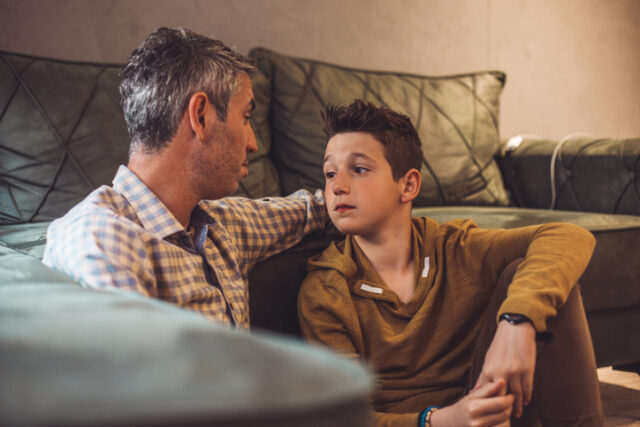Parents play a huge role in shaping their kids’ self-esteem.

You want to build your children up and make them feel strong, capable, and worthy, but there could be things you’re doing that are having the opposite effect. If you have any of these bad habits, you could be killing their confidence, and that’s the last thing you want.
1. Constantly criticising their efforts

Constantly pointing out what they did wrong can make them doubt themselves. Even if you’re just trying to help them improve, too much critique makes them feel like they can’t do anything right. Try balancing feedback with encouragement — and make sure you’re celebrating their effort, not just the result.
2. Setting unrealistic expectations

Pushing your kid to be the best at everything can backfire. They might feel like they’ll never measure up if your expectations are too high. Instead of focusing on perfection, set goals that match where they are and who they are. Help them feel proud of their progress, not just the finish line.
3. Comparing them to siblings or peers

“Why can’t you be more like your brother?” or “Look at how well your friend did in school” can feel like a dagger. Every child is different, and comparisons only make them feel like they’re not enough. Focus on what makes your child unique, and help them embrace their own strengths instead of pitting them against other people.
4. Forgetting to praise them

Kids need to hear that they’re doing well! If you’re not taking the time to acknowledge their hard work or successes, they may start to feel like their efforts don’t matter. A simple “Well done” or “I’m proud of you” goes a long way in making them feel valued and seen.
5. Overprotecting them

We all want to protect our kids, but constantly swooping in to fix everything can hold them back. Letting them face small challenges — and even fail sometimes — teaches them that they’re capable of handling whatever comes their way. It’s how they learn to bounce back and build confidence in themselves.
6. Being inconsistent with rules

One day they’re in trouble for something, the next day you let it slide. This can leave them feeling unsure about boundaries. When kids don’t know what to expect, they can start to feel insecure. Keep the rules fair and consistent, so they know where the lines are and feel safer because of it.
7. Dismissing or invalidating their emotions

Telling your child to “stop crying” or brushing off their feelings teaches them to bottle up their emotions. It’s important to let them know that whatever they’re feeling is valid, even if you don’t quite get it. Help them learn to express their emotions, instead of shutting them down.
8. Focusing solely on achievements

If all you praise are the grades or awards they bring home, your child might start to think that’s the only thing that makes them valuable. Take time to recognise their kindness, creativity, or hard work, not just their accomplishments. It’s the person they’re becoming that matters most.
9. Making jokes at their expense

What might seem like harmless teasing to you could actually hurt your child’s self-esteem. Jokes about their looks, quirks, or mistakes can stick with them long after you’ve forgotten you said it. Make sure your humour lifts them up, not tears them down.
10. Withholding affection as punishment

Love shouldn’t come with strings attached. If your child feels like your affection depends on their behaviour, they might start feeling insecure. Even when you’re upset or disciplining them, make sure they know that your love for them never wavers.
11. Ignoring their need for privacy

As your kids grow, they’ll want — and need — their own space. Snooping through their things or monitoring every conversation can make them feel like you don’t trust them. Respect their privacy where it’s appropriate, and keep an open line of communication instead.
12. Projecting your own insecurities onto them

Kids pick up on your anxieties. If you’re constantly worried about your own body image, success, or failures, they might start feeling those same pressures. Try to keep your personal struggles in check, and make sure you’re not passing on unnecessary fears to them.
13. Solving every problem for them

If you’re always stepping in to fix things, your child might start doubting their own ability to handle challenges. Instead of jumping in with a solution right away, guide them through the process of figuring it out. It’ll boost their problem-solving skills — and their confidence in themselves.
14. Talking to or about yourself like rubbish

Your kids are listening when you criticise yourself. If you’re constantly saying negative things about your abilities or appearance, they’re likely to follow your lead. Show them what positive self-talk looks like by being kind to yourself. You’ll help them develop a healthier, more confident inner voice.



